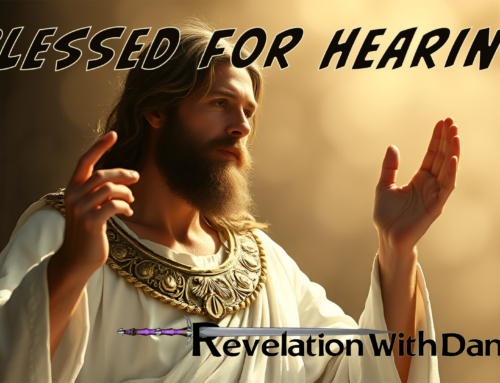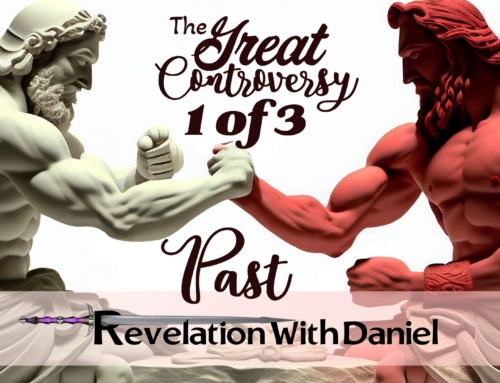 Where are the words ‘trinity,’ triune,’ triunity,’ or the like in the Bible?
Where are the words ‘trinity,’ triune,’ triunity,’ or the like in the Bible?- Can we find ‘God the Son’ in the Bible?
- Can we find ‘God the Spirit’ in the Bible?
- Where is the term ‘co-eternal’ in the Bible?
- Where is the term ‘co-equal’ in the Bible?
- If the salient words or phrases of the trinity are not found in the Bible, where did this idea come from?
- In an Old Testament prophecy of Jesus Christ in the Bible, when it refers to the “counsel of peace” which is “between them both,” who are the both? If it was God the Father and His Son, where was the Spirit?
- If Proverbs 8:22-30 relates to “wisdom” as being “brought forth” and “as one brought up with” God, and then the prophet Paul refers to Christ as “wisdom” in 1 Corinthians 1:24 and 30, is there a prophets` inspired authority to make that connection?
- Who is the most high? (Find out from a demon in Mark 5:7.)
- Lucifer wanted to be “like the most high,” according to Isaiah 14:12-15, so who is “like the most high?” (Find out from Hebrews 1:1-3 who was the “express image of” God, the most high.)
- Why was Lucifer envious of the Son of God and not of God the Father? Was there a difference? (See Christ’s answer at the end of John 14:28.)
- Where is an example or reference in the Bible where it says it is metaphorical, symbolic, an illustration, or to be understood as an analogy that God is His Son’s actual Father?
- If the trinity’s ‘God the Spirit’ makes intercession for humans in Romans 8:26, how can Paul say that there is only one mediator between God and men? (See 1 Timothy 2:5 to see how many intercessors there are, and who the intercessor is. Then read Romans 8:34 to see who makes intercession in the greater context of Romans 8:26.)
- How many ways are there to the Father? (See John 14:6 for the answer given by Jesus.)
- Did God first send His Son into the world and then did God send someone else after the ascension? (Notice Galatians 4:4 and 6 for the answer.)
- If it was ‘God the Spirit’ that placed the holy seed in the virgin Mary, then does Christ have two Fathers? God the Father and ‘God the Spirit’? (Notice that the Bible says what came upon Mary in Luke 1:35, it was “the power of the Highest…”. Again, consider 1 Corinthians 1:24).
- When Christ was baptized and the “Spirit of God” came down upon Him in the form of a dove, should we take that to be literal? Is ‘God the Spirit’ actually a bird? See Romans 1:20-23.
- In Genesis 28:11-13 and John 1:51 a ladder is referred to which Christ said symbolized Himself. What do we see as non-symbolic ascending and descending on the ladder and or Christ in both Scripture references?
- If God is made up of three beings, why was Adam and Eve created in God’s image as two beings instead of three? (See Genesis 1:26-27.) Would this mean that in verse 26 God was speaking to one other being, rather than two other beings?
- How could Christ have always been omnipotent (all powerful) when saying that all power was “given” unto Him? (See Matthew 28:18.)
- If Christ was always omniscient (knowing everything) how could the Bible say He “increased in wisdom” in Luke 2:52 and learned obedience in Hebrews 5:8?
- How could Christ have always been omnipresent (everywhere present) when He said that He needed to go away to send the Spirit? (See John 16:7.)
- Wait a minute! Wasn’t the Spirit always here already? (Notice what Jesus had previously said in John 7:38-39.)
- Is there a need to study a bit more to find out what was really going on in Genesis 1:2? See Psalm 33:6-9.
- Are there any examples in the Bible where the “Spirit of God” is worshipped? (See who is worshipped by all in Revelation 5:11-14.)
- When Nebuchadnezzar’s “spirit was troubled,” is the Bible referring to someone other than Nebuchadnezzar himself? So, in the creation story, is the “Spirit of God” referring to someone other than God Himself?
- What did Christ mean when He said that the Father is “the only true God”? (See John 17:3. Consider Hebrews 8:2.)
- What did Paul mean when he said the Father is the “one God and Father of all”? (See Ephesians 4:6.)
- What did Paul mean when he said, “to us there is but one God, the Father, of whom are all things, and we in him; and one Lord Jesus Christ”? 1 Corinthians 8:6
- What did Paul mean when he said, “there is one God, and one mediator”? 1 Timothy 2:5
- What did James mean when he said, “Thou believest that there is one God; thou doest well: the devils also believe, and tremble?” James 2:19
- Why does the Bible show God the Father and His Son on a throne while there is no place on the throne for the Spirit? (This is the same idea as on the table of shewbread in the sanctuary, see Leviticus 24:5-6.)
- What does the Bible mean when it says, “the Spirit of truth, which proceedeth from the Father”? (John 15:26)
- What does the Bible mean when it says, “the Father that dwelleth in me, He doeth the works”? (John 14:10)
- Whose mind was in Christ? (See Philippians 2:5.)
- Did Jesus really say, “I will come to you,” in John 14:18 while explaining that the “Comforter” would be sent from the Father? (Again, see Galatians 4:4 and 6.)
- Did Judas, not Iscariot, know who Christ was referring to while speaking of the coming Comforter? (See John 14:22.)
- The Greek word for “Comforter” occurs only five times in the New Testament, each time used by John. What is the name given by John to the “Comforter” or “Advocate” in the last time it is used in 1 John 2:1?
- Was it really an angel that gave prophecy to Daniel in chapters 8-12?
- How is it that Revelation 1:1 explains the Father giving His Son the gospel, who gave it to an angel, which gave it to John? Where was the Spirit?
- Is it really that clear in Revelation 19:10 that angels “have the testimony of Jesus” which is “the Spirit of prophecy”?
- Is it really true in Revelation 22:9 that angels are “of thy brethren the prophets”?
- Was God lying when He said, “This is my beloved Son, in whom I am well pleased”? (Matthew 3:17)
- Was God lying when He repeated the same sentiments in Matthew 17:5?
- Who did Christ call His God? (See John 20:17, Revelation 3:12.)
- What very important being did God the Father recognize Himself to be the God of? (See Hebrews 1:8-9.)
- Is it really antichrist to deny the Father and His Son? (See 1 John 2:22-23)
- When Jesus asked who men thought He was, what was Peter’s answer, and who revealed that to Peter? (See Matthew 16:13-17.)
- When Paul the apostle preached Christ when He was converted to Christianity, what was his message? (See Acts 9:17-20.)
- What was the purpose of John’s gospel? (See John 20:31.)
Click here for a picture illustrating a difficult situation…







Hello Pastor Daniel, as I can see, so far you are the only person who has expounded and explained things so well and easy to understand. I look forward to reading and studying your inspiring materials, which made me started thinking and re-thinking everything I know…
Praise God!
Thank you for these questions, Daniel. They are very helpful in my study of the Godhead.